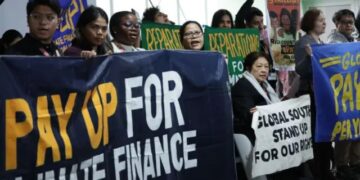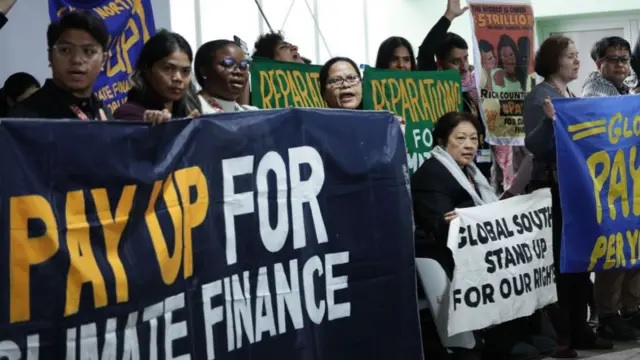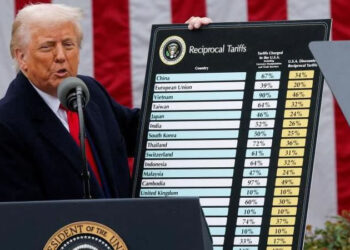By John Ikani
At COP29 in Azerbaijan, developing nations pressed for greater financial commitments from wealthy countries, accusing them of shirking responsibilities tied to their historical emissions. Wealthier nations countered that the hefty financial demands are politically unattainable.
Azerbaijan’s draft proposal, unveiled shortly before the summit’s conclusion, suggested $250 billion annually from developed countries by 2035. It also set a broader target of $1.3 trillion per year by 2035, combining public and private sector contributions.
For many nations most vulnerable to climate change, the proposal fell far below expectations. They had demanded an increase on the current $100 billion annual funding pledge, a demand many consider crucial to any meaningful agreement.
Strong Criticism Over Targets
Ali Mohamed, chair of the African Group of Negotiators, dismissed the proposal as “totally unacceptable and inadequate.” He warned that $250 billion annually would result in catastrophic loss of life, particularly in Africa, and jeopardize global stability. The Alliance of Small Island Developing States echoed the sentiment, saying the offer disregards the realities faced by vulnerable nations.
The United States signaled little appetite for raising the financial commitment. With President-elect Donald Trump poised to re-enter office, fears of a renewed retreat from climate negotiations loom large. A senior U.S. official noted, “It has been a significant lift over the past decade to meet the prior, smaller goal,” implying that the $250 billion target was ambitious enough.
Germany, known for its leadership on climate policy, stressed the need for alternative financial strategies such as debt restructuring. German Foreign Minister Annalena Baerbock remarked, “Europe wants to fulfill its obligations but cannot make promises it won’t deliver on.”
Negotiators Struggle to Find Common Ground
COP29’s lead negotiator, Yalchin Rafiyev, acknowledged dissatisfaction with the proposal, admitting it “doesn’t correspond to our fair and ambitious goal.” Climate advocates were more direct. Greenpeace’s Jasper Inventor called the draft “inadequate and disconnected from the actual needs of vulnerable countries.”
Still, some observers noted incremental progress. Avinash Persaud, an advisor on climate policy, said the talks were “within sight of a landing zone,” but warned that any deal would likely leave many disheartened.
Debate over financial contributions from emerging economies like China further complicated negotiations. The U.S. and EU urged China, a major emitter, to contribute to the funding pool, but Beijing insisted on maintaining voluntary terms for its contributions.
Energy Debate Intensifies
Contention over fossil fuels remained a major hurdle. Many nations want a firm commitment to phase out coal, oil, and gas, but Saudi Arabia, representing the Arab Group, rejected any language targeting specific energy sectors. The dispute follows last year’s COP28 summit, which called for a global transition away from fossil fuels.
Baerbock criticized Saudi Arabia’s stance, accusing it of undermining progress. Azerbaijan, the summit host, has also come under fire for its handling of the talks. Mohamed Adow of the Climate Action Network called COP29 “the worst COP in recent memory,” citing weak leadership from Azerbaijan’s government.
Escalating Climate Crises Demand Action
This year’s climate summit comes amid unprecedented global warming and escalating natural disasters. Since COP29 began, the Philippines and Honduras have suffered deadly storms, Ecuador declared an emergency over droughts and wildfires, and Spain endured devastating floods.
With time running out, the urgency for decisive action grows. However, divisions over financial commitments and fossil fuel policies highlight the immense challenges that remain. Whether COP29 delivers meaningful outcomes or further delays progress is now in the balance.




































